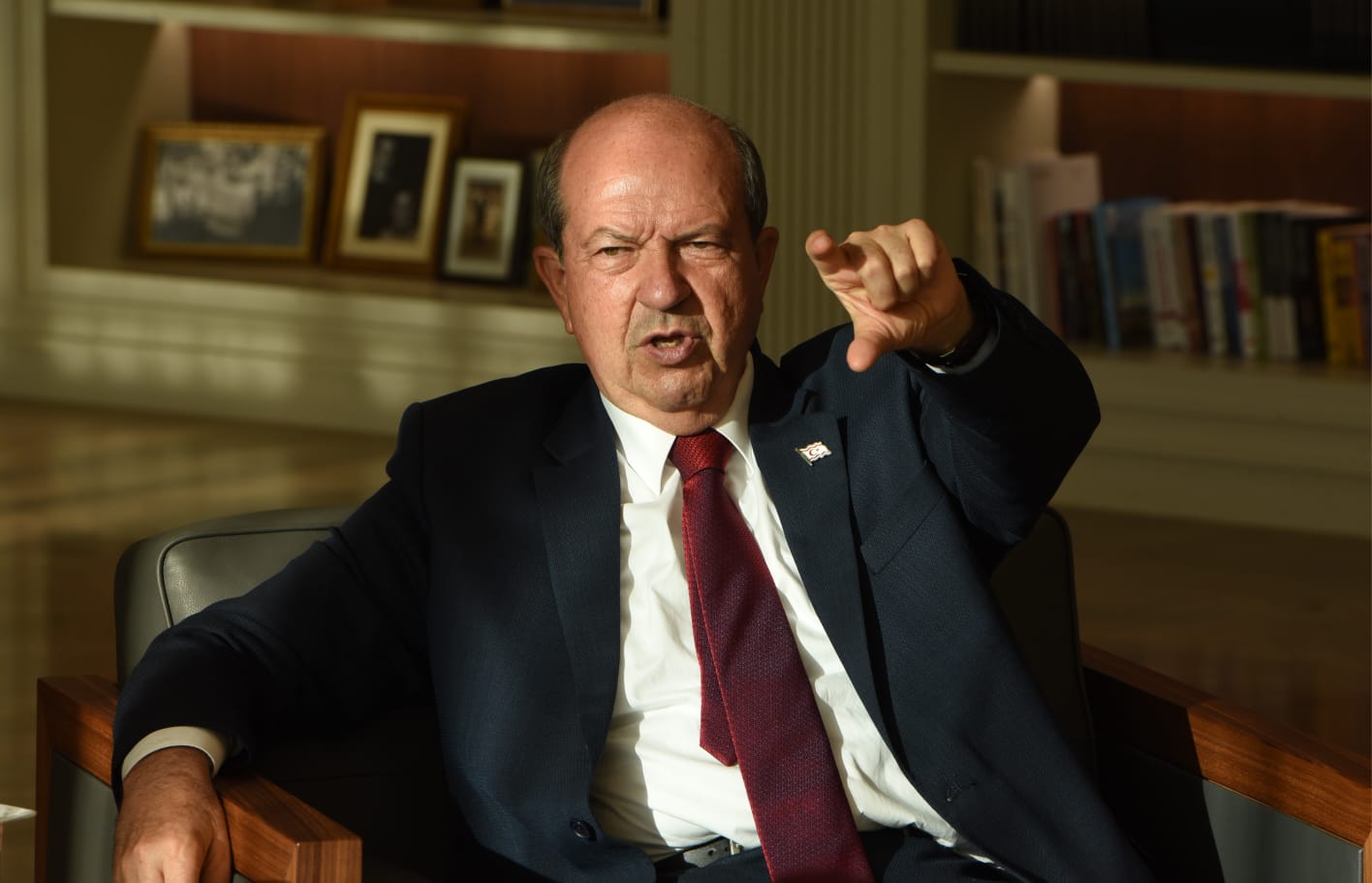Turkish Cypriot leader Ersin Tatar admitted on Sunday evening that there had been “tension” at his meeting in New York with President Nikos Christodoulides and UN secretary-general Antonio Guterres, but pointed out that it was not his fault.
He did, however, stress that it was out of the question for negotiations for a Cyprus settlement to pick up from where they left off in Crans Montana in 2017.
Speaking on his return to the north, Tatar spoke of “a new course” and said “the issue of a federation has closed”.
On Saturday, after the joint meeting at UN headquarters in New York, Christodoulides had said that Guterres’ message was that talks for a Cyprus settlement must resume from where they broke off at Crans Montana, adding that Guterres was dedicated to the effort, while Tatar was aggressive and resorted to accusations.
Tatar on Sunday said “the federation chapter has closed and Turkey will now only support the policy of two states”.
He added that, despite Christodoulides insisting on resuming talks from the Crans Montana point, the Turkish side was adamant in objecting to this.
“We will never accept this because a new course has begun,” he said, adding that with Turkey’s support, a settlement would have to guarantee “sovereign equality and an equal international status, in other words a two-state solution”.
Tatar said “the future of Cyprus will be formed in essence by the cooperation of these two states.”
Commenting on Christodoulides’ remarks that the Turkish Cypriot leader had maintained an “aggressive tone” at the meeting, Tatar said that because the Republic of Cyprus is a recognised state, Christodoulides was trying to set the agenda himself and was thus bringing up Crans Montana at every opportunity.
Tatar said no such reference was made by Guterres.
“The secretary-general said a process must continue. He will send his personal envoy here after October 19 to investigate and we will meet again before the New Year in an enlarged formation 5+1. I believe, and does the Turkish side, that at this meeting, with the cooperation of our two states, we will discuss a series of issues on various topics and we will jointly form developments that will benefit both peoples,” Tatar said.
The third enlarged meeting on the Cyprus problem, involving Cyprus’ two sides, the UN and the island’s three guarantor powers – Greece, Turkey and the United Kingdom – will take place in autumn, most likely November.
Tatar said Christodoulides’ insistence on continuing talks from where they left off at Crans Montana “caused some tension”.
The Turkish Cypriot leader said he was “polite” and told Guterres that efforts have been ongoing for the past two years to create a better climate, despite Christodoulides – according to Tatar – following a policy that did not aim at creating a better climate, but worsening it.
Explaining his position, Tatar referred to the arrest of individuals for the usurpation of Greek Cypriot properties in the north, blocking the promotion of halloumi from the north abroad, hindering students studying in universities in the north and issues with the crossing points.
“I said I had difficulty understanding this […] and because he didn’t like it, he was aggressive. I did not speak aggressively. I laid out the facts,” Tatar said.
What was also aggressive, he said, was Christodoulides’ speech at the UN general assembly.






Click here to change your cookie preferences